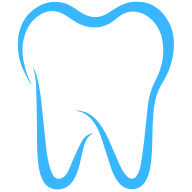5 the Connection Between Diet and Oral Health
Unravel the intricate link between what we eat and the health of our mouth in this enlightening exploration. Drawing from the wisdom of seasoned dental experts, this article delves into how everyday dietary choices impact oral wellness. Discover how lemon water, sugar intake, and hard foods can make or break your dental health.
- Lemon Water Harms Teeth Despite Health Benefits
- Water Intake and Sugary Foods Impact Oral Health
- Whole Foods Improve Dental Checkups and Wellness
- Hard Foods Promote Healthier Teeth and Gums
- Reducing Sugar Intake Improves Oral Health
Lemon Water Harms Teeth Despite Health Benefits
While great for systemic health, lemon water and apple cider vinegar are terrible for the teeth. Their high acidity leaches the minerals from teeth leading to erosion and decay.
It's sad to see so many health conscious patients have such poor oral health outcomes because of lemon water. This is an example of how positively motivated dietary changes can be in fact negative.
Water Intake and Sugary Foods Impact Oral Health
Diet and oral health have many clear connections. Two of the most common ones are water intake and the consumption of sugary/acidic foods.
In my experience, I've noticed that lower water intake results in dry mouth, which reduces saliva production. Less saliva production, in turn, results in poorer self-cleansing of the teeth and gum surfaces. In addition, the mouth becomes less effective at washing away particles associated with unpleasant tastes and odors.
Meanwhile, sugary foods contribute to cavity formation by feeding the naturally-occurring bacteria in our mouths. These bacteria consume sugars and produce acid, which weakens and breaks down enamel. Similarly, acidic foods and drinks, including soda, fruit juices, and energy drinks, can directly contribute to enamel damage both through their sugar content and direct acidic insult to our teeth.
Most children love candy and sugar. As a child, I was no different. This resulted in me developing several cavities on my primary teeth. However, as I grew older, my dietary habits began to change. While playing competitive sports in high school, I cut out soda entirely and replaced it with water. I also avoided energy drinks and limited my consumption of other acidic and sugary beverages. This shift coincided with the time I had braces from my orthodontist, as she warned me that soda can result in permanent white spots on teeth after treatment is completed. Since making these dietary changes, nearly every cavity I've had in my life has been the result of an older cavity breaking down, rather than the development of new ones.
These early experiences made it clear how much our dietary habits influence oral health. It's a lesson I carry with me as an orthodontist today. When I work with patients, I always emphasize that the goal is not only straighter teeth but a healthier smile as well.

Whole Foods Improve Dental Checkups and Wellness
I've learned that avoiding sugary and processed foods, like snack bars, plays a big role in protecting oral health. Even "healthy" snack bars often stick to teeth, promoting cavities, inflammation, and plaque buildup.
Instead, I opt for whole foods like nuts, gluten-free beef jerky, or vegetables, which not only support oral health but also stabilize blood sugar and reduce cravings. This shift has significantly improved my dental checkups and overall wellness.

Hard Foods Promote Healthier Teeth and Gums
Connecting diet and oral health sometimes gets stuck between sugary food and drinks and caries perspective. But actually, it is a lot more than that. We have to factor in the softness of what you consume into the equation. Eating hard foods can clean your teeth, clean your soft tissue, and make sure your gums and bones become healthier.
Easily chewable soft foods usually stick to your teeth much more easily. Considering those are generally foods that are high in carbs, they cause more caries. More than that, if your foods don't require you to chew more than 3 times to be fully disintegrated, it doesn't stimulate your teeth enough to generate a response in your bones, muscles, and gums. Especially in children aged 3-10, that stimulus is one of the most important causes of adequate bone growth supporting facial features.

Reducing Sugar Intake Improves Oral Health
As the Founder of Zapiy.com, I've learned firsthand that the connection between diet and oral health is stronger than many people realize. One of the most impactful lessons I've experienced is how reducing sugar intake can drastically improve oral health. Like many others, I used to grab sugary snacks or drinks to keep me going during a busy workday, thinking it was harmless. Over time, I started noticing increased sensitivity in my teeth, and my dentist flagged early signs of enamel erosion.
That wake-up call led me to make a conscious effort to replace sugary snacks with healthier alternatives, like nuts, cheese, or fresh vegetables. For example, swapping out a mid-afternoon candy bar for crunchy carrot sticks not only kept my teeth safe from sugar but also stimulated saliva production, which is a natural way to combat harmful bacteria in the mouth.
Within a few months of making these changes, I noticed a significant improvement—not just fewer dental issues but also better overall energy levels. It's incredible how closely oral health ties to what we eat. I also incorporated more calcium-rich foods, like yogurt, to help strengthen my teeth and improve gum health.
This experience has taught me that oral health isn't just about brushing and flossing; it's about taking a holistic approach to what we put into our bodies. It's a simple yet powerful shift that has improved both my oral health and overall well-being.


